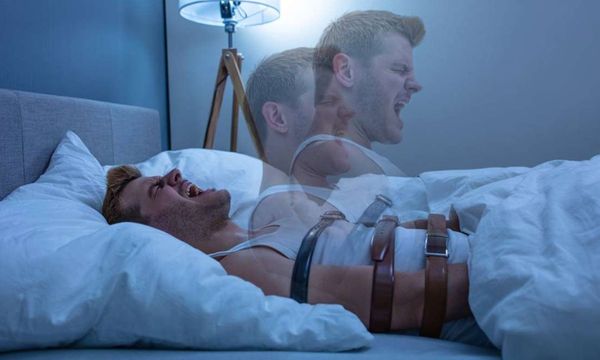
Sleep paralysis is an intriguing phenomenon that occurs when you are conscious and aware but unable to move physically. It often happens as you transition between wakefulness and sleep, leaving you in a state of temporary immobility. While this may sound scary, it is actually a common experience that does not cause any physical harm.
The Two Stages of Sleep Paralysis
Sleep paralysis happens in two stages: “hypnagogic” before falling asleep and “hypnopompic” upon waking from REM sleep.
- Hypnagogic sleep paralysis occurs when your mind remains aware while your body naturally relaxes during the onset of sleep. This can lead to a realization of immobility and sometimes panic.
- Hypnopompic sleep paralysis occurs when a specific part of your brain wakes up earlier than usual, resulting in a state of wakefulness without voluntary control over your muscles.
Who Experiences Sleep Paralysis?
While some people may only experience sleep paralysis once or twice in their life, others may face it frequently, even multiple times a week. About 8 percent of the population encounters frequent sleep paralysis, with a higher likelihood among those with mental disorders like anxiety and depression.
Certain factors can increase the frequency of sleep paralysis episodes, including:
- Lack of sleep
- Frequent changes in sleep schedule
- Mental conditions like stress or bipolar disorder
- Sleeping on your back
- Sleep problems such as narcolepsy or nighttime leg cramps
- Certain medications, including those for ADHD
- Substance abuse
Symptoms of Sleep Paralysis
During sleep paralysis, individuals are typically unable to move or speak for a few seconds to a few minutes. It most commonly occurs when you are just falling asleep or immediately waking up.
Seeking Treatment for Sleep Paralysis
In most cases, sleep paralysis requires no specific treatment. However, if an underlying condition is discovered during diagnosis, a doctor may recommend a prescribed treatment plan.
Some potential treatments for sleep paralysis include:
- Implementing a consistent sleep schedule
- Prescribing an anti-depressant
- Referring to a mental health professional
- Consulting a sleep specialist
- Addressing any underlying sleep disorders
- Prescribing sleeping aids
Prioritizing sufficient sleep and reducing unnecessary stress before bedtime can often prevent sleep paralysis. If you experience rare episodes, paying attention to your sleep habits is recommended, as sleep deprivation can increase the likelihood of an episode. Avoiding alcohol, drugs, nicotine, and caffeine, as well as keeping electronic devices out of the bedroom, can also help establish healthy sleep patterns. And most importantly, remember to stay calm during an episode and remind yourself that it will pass.



